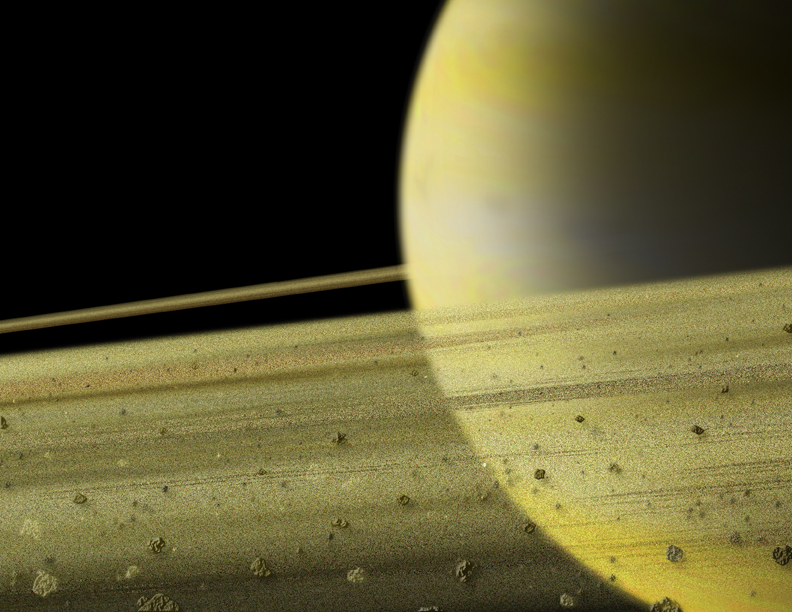
All good rings must come to an end, say NASA scientists who theorize that Saturn’s famed feature will disappear in millions of years.
Icy water comprises more than 90 percent of the rings of Saturn, and in 2013 scientists showed that “ring rain”—a dusty shower of ice particles—is being pulled into the planet’s atmosphere from space by a magnetic field. Ring rain has been studied since the 1980s, but it wasn’t until 2013 that scientists captured direct evidence for it using spectral data from Saturn’s ionosphere.
Now, NASA experts say that Saturn’s rings are raining themselves into oblivion—a phenomenon happening at a rate of of 4,400 pounds of water per second—giving the rings a maximum lifetime of 292 million years.
“The rings of Saturn haven’t been around forever,” James O’Donoghue, a postdoctoral fellow at NASA’s Goddard Space Flight Center, told the New York Times on Monday. “And they’re going to disappear someday.”
O’Donoghue and a team of researchers from the US and United Kingdom published their findings in the journal Icarus on Monday.
The new study also underscores a theory that Saturn’s rings are likely 100 million years old or younger, not billions of years. Last year, a flyby of NASA’s Cassini probe also hinted that Saturn’s rings may be young. Saturn’s iconic belt stretches 175,000 miles across and mostly consists of icy chunks, ranging from teeny tiny to boulder size. Data gathered by Cassini showed the rings’ particles are rather small—perhaps debris from a past collision with the planet, and not as primordial as once theorized.
The new projections are based on the assumption that Saturn’s rings rain at a constant rate, but it could vary. It’s also possible that the deterioration of other particles in the rings could shorten their lifetime to roughly 100 million years.
“We are lucky to be around to see Saturn’s ring system, which appears to be in the middle of its lifetime,” O’Donoghue said in a statement on Monday.























